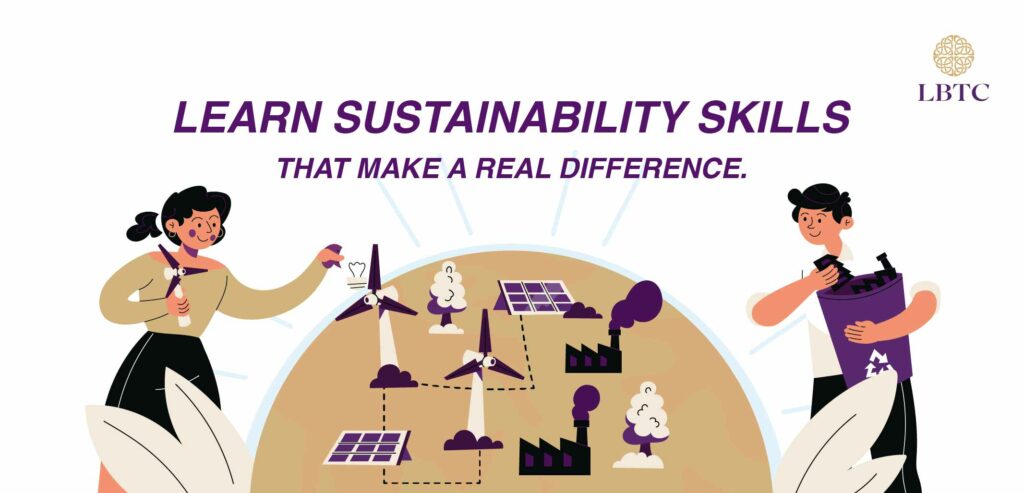
In the face of escalating climate and biodiversity crises, businesses around the globe are under pressure to transform — and that transformation begins with people. But a severe sustainability skills shortfall threatens progress. The gap “must be made up quickly” if organizations hope to meet their environmental commitments.
The Urgency Behind the Shortfall
Demand for sustainability expertise is skyrocketing. A LinkedIn study highlights that jobs requiring green skills have grown 5.9% annually between 2021–2024, whereas available talent rose just 3.2% — creating a mismatch expected to grow wider by 2050.² Almost twice as many roles are open compared to qualified candidates. This shortfall spans core competencies—from carbon accounting and supply‑chain sustainability to renewable energy management and regulatory reporting. Businesses not only need these skills today—they need them fast.
Why Sustainability Training Makes a Real Impact
Training isn’t just a checkbox — it’s a strategy:
- Cross‑functional knowledge: Sustainability touches finance, procurement, marketing, and HR. Providing all teams with tailored sustainability training empowers them to make ethical decisions in everyday tasks.
- Micro‑credentials & short courses: Flexible badge programs in areas like green finance, circular economy, or renewable energy help mid‑career professionals quickly fill gaps — without investing years in degrees.
- Soft skills matter: Success requires more than technical know‑how. Interpersonal competence, systems thinking, resilience, and communication are vital for driving organizational change.
Building a Sustainability Skills Roadmap
- Assess your baseline
Conduct a skills audit: what knowledge exists, what’s missing? Match roles with essential sustainability competencies — from energy management to waste/recycling strategy and corporate social responsibility. - Design a tiered training program
- Foundation modules (e‑learning, workshops) for all employees
- Role-specific certifications (e.g., carbon reporting for finance, circular product design for R&D)
- Leadership-level, strategic coaching for senior teams and boards to embed sustainability at the top.
- Integrate sustainability into culture and HR
Include sustainability targets in job descriptions, performance reviews, and leadership KPIs. Reward and recognize sustainability champions to create momentum from within. - Leverage partnerships
Collaborate with universities, NGOs, and professional providers to access micro‑credentials, short courses, and specialist mentoring. Public-private cooperation strengthens future supply of trained talent.
Outcomes You Can Measure
- Compliance: Teams equipped for new regulations like CSRD or evolving ESG standards
- ROI: Reduced energy consumption, waste minimization, and operational efficiencies
- Innovation: Employees empowered with green knowledge often generate fresh product ideas, service models, or circular solutions
- Recruitment & retention: Companies with strong sustainability cultures attract and retain purpose‑driven talent — a competitive edge in today’s labor market.
Achieving sustainability is not just about deploying new technology — it’s about developing human potential through thoughtful sustainability training. For organizations serious about making a real difference, the path is clear: define your skills needs, launch a layered training strategy, embed sustainability into your talent lifecycle, and measure impact. By doing so, you’ll help close the shortfall and chart a more resilient future.

Leave a Reply